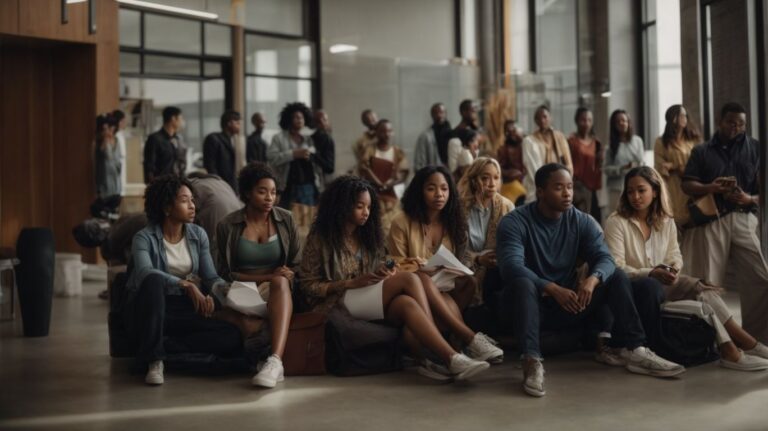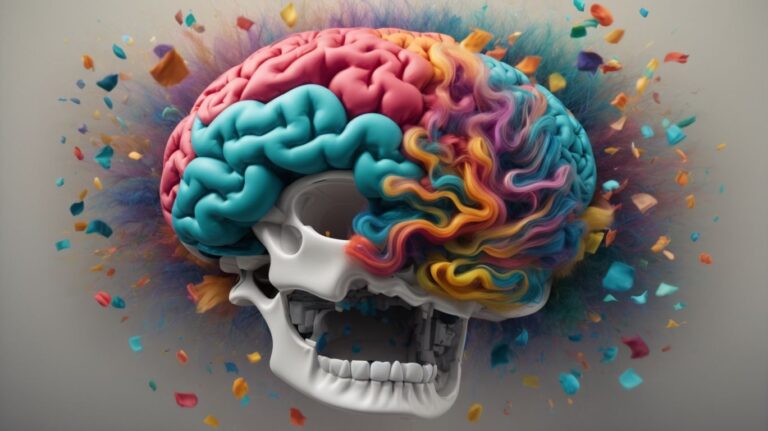Confirmation bias is a common psychological phenomenon that affects the way we think and make decisions. This article will explore what confirmation bias is, how it impacts our thinking, and provide real-life examples of its effects.
From political beliefs to superstitions, we will examine how confirmation bias can influence our perceptions. We will discuss how confirmation bias can impact decision-making processes, as well as strategies to overcome this cognitive bias.
Join us as we delve into the fascinating world of confirmation bias and its implications in our daily lives.
Contents
What Is Confirmation Bias?
Confirmation bias refers to the tendency of individuals to seek out, interpret, and recall information in a way that confirms or supports their preexisting beliefs and hypotheses.
This cognitive bias plays a significant role in how people process information, filtering incoming data through the lens of their existing opinions. It can lead to a distorted perception of reality, where individuals tend to ignore evidence that contradicts their views while actively seeking out and giving more weight to information that aligns with what they already believe.
In various studies on decision-making, confirmation bias consistently emerges as a key factor influencing the choices people make. It can lead to flawed reasoning and hinder the ability to critically evaluate alternative perspectives, ultimately impacting the quality of decisions in both personal and professional contexts.
How Does Confirmation Bias Affect Our Thinking?
Confirmation bias significantly influences our thinking by shaping how we process information, reinforcing our existing beliefs, and affecting our decision-making processes.
When confirmation bias takes hold, individuals tend to selectively seek out information that aligns with their preconceived notions, dismissing contradictory evidence as anomalies or errors. This tendency to cherry-pick data can lead to overlooking important facts and drawing inaccurate conclusions. Confirmation bias can also impact how we interpret the world, distorting our perceptions and creating a warped reality shaped by our biases. By reinforcing our beliefs, this cognitive bias can create an echo chamber effect, where we surround ourselves with like-minded individuals and sources, further entrenching our existing views.
Real-Life Examples of Confirmation Bias
Real-life examples vividly demonstrate how confirmation bias operates in various contexts, affecting people’s perceptions, judgments, and behaviors.
For example, in the realm of politics, individuals tend to seek out news sources and social media platforms that align with their existing beliefs, reinforcing their preconceived notions and overlooking contradictory information. This selective exposure perpetuates confirmation bias, strengthening ideological divides and hindering open-minded discourse.
In finance, investors may overlook warning signs or expert advice that contradicts their bullish outlook on a particular stock, leading to potentially risky decisions driven by the desire to confirm their positive expectations. Such biased financial decisions can result in significant losses and missed opportunities.
Political Beliefs
Political beliefs are often subject to confirmation bias, where individuals selectively perceive and accept information that aligns with their political views, leading to polarization and resistance to contradictory evidence.
For example, individuals with a liberal ideology may be more inclined to trust and share news articles from left-leaning sources, while dismissing or ignoring those from conservative outlets. This bias not only affects how people interpret information but also influences their policy preferences. Someone biased towards a particular political party may be more likely to support policies associated with that party, even if evidence suggests they may not be the most effective solutions.
Conspiracy Theories
Confirmation bias plays a significant role in the propagation and persistence of conspiracy theories, as individuals tend to selectively recall and emphasize information that supports their conspiratorial beliefs while avoiding contradictory evidence.
This psychological phenomenon influences how people interpret and process information, leading them to seek out data that confirms their preexisting notions, even if such data lacks credibility or is distorted.
For instance, in the case of the moon landing conspiracy theory, proponents often focus on anomalies or inconsistencies in the footage, while disregarding overwhelming scientific evidence that supports the authenticity of the moon landing.
To counteract confirmation bias and combat the proliferation of conspiracy theories, fostering
critical thinking skills and encouraging open-mindedness are essential. Illustrating Confirmation Bias in Psychology: Real-Life Examples and Effects.
Stereotypes
Stereotypes are often perpetuated by confirmation bias, where individuals rely on selective information that confirms existing stereotypes while dismissing or discounting evidence that challenges their validity.
This cognitive bias poses a significant challenge in dismantling stereotypes, as individuals tend to seek out information that aligns with their preconceived notions, reinforcing biased beliefs. This not only affects social perceptions of different groups but also influences interpersonal interactions, leading to misunderstandings and prejudices. In group dynamics, confirmation bias can lead to polarization and conflict, creating barriers to collaboration and empathy.
Superstitions
Superstitions often thrive on confirmation bias, with individuals attributing positive outcomes to superstitious beliefs due to selective recall of confirming instances, leading to self-fulfilling prophecies and reinforced irrational beliefs.
When individuals engage in confirmation bias, they tend to seek out information that aligns with their preconceived beliefs or expectations, while disregarding contradictory evidence. In the context of superstitions, this means that people are more likely to remember instances where their beliefs ‘came true,’ reinforcing the idea that the superstition was responsible for the outcome.
This phenomenon creates a cycle where the individual’s belief in the superstition grows stronger with each confirming instance, further solidifying the irrational connection between the superstition and positive outcomes.
How Does Confirmation Bias Impact Decision Making?
Confirmation bias exerts a profound impact on decision-making processes by limiting information gathering, favoring data that confirms existing beliefs, and distorting the evaluation of alternative options.
When individuals fall prey to confirmation bias, they tend to seek out information that aligns with their preconceived notions, reinforcing their initial standpoint. This cognitive bias can blur the line between objective analysis and subjective interpretation, leading to skewed perceptions of risks and rewards.
Moreover, confirmation bias can inadvertently diminish the diversity of viewpoints considered during decision-making, narrowing the scope of available solutions and potentially overlooking innovative or unconventional approaches that could yield better outcomes.
Limited Information Gathering
Confirmation bias leads to limited information gathering in decision-making, as individuals tend to selectively seek out data that aligns with their preconceptions, overlooking contradictory evidence that could enhance the decision-making process.
This tendency can significantly impact the quality of research findings and the robustness of decisions made based on those findings. When individuals focus solely on confirming their existing beliefs, they may miss crucial insights and alternative perspectives that could lead to more informed choices.
Confirmation bias can distort risk assessments, leading to potentially flawed conclusions and outcomes. For counteract this bias, it is essential to actively seek out diverse sources of information, challenge one’s own assumptions, and encourage a culture of open-mindedness and critical thinking within decision-making processes.
Biased Interpretation of Information
Confirmation bias distorts the interpretation of information by favoring explanations that reinforce existing beliefs, leading to skewed perceptions, faulty reasoning, and suboptimal decision outcomes.
When individuals face data or opinions that align with what they already believe, they tend to gravitate towards those, often ignoring conflicting evidence or alternative viewpoints. This biased filtering affects not only our comprehension but also our ability to engage in rational debates and problem-solving exercises. Subconsciously cherry-picking information to confirm our preconceptions forms a feedback loop that strengthens these beliefs, hindering the capacity for growth and adaptability.
Ultimately, such cognitive tendencies could hinder effective communication, dampen critical thinking skills, and impede objective decision-making processes, impacting personal and professional spheres alike.
Reinforcing Existing Beliefs
Confirmation bias reinforces existing beliefs by selectively processing information that supports those beliefs while discounting or dismissing contradictory evidence, creating a cycle of reinforcement that can be challenging to overcome.
Confirmation bias can lead individuals to seek out information that aligns with what they already believe, unknowingly ignoring anything that contradicts their preconceptions. This tendency to cherry-pick data not only strengthens one’s current beliefs but also hinders the ability to consider alternative viewpoints. Overcoming confirmation bias requires a conscious effort to actively engage with diverse perspectives and information sources.
How Can We Overcome Confirmation Bias?
Overcoming confirmation bias requires conscious effort and an awareness of its influence on our thinking, decision-making, and beliefs.
By actively seeking out contradictory evidence to our preconceived notions, we can challenge and reevaluate our beliefs objectively. Engaging in discussions with individuals who hold differing viewpoints can also help broaden our perspective and reveal blind spots in our thinking. It’s crucial to cultivate a habit of fact-checking sources and verifying information before drawing conclusions. Developing critical thinking skills enables us to spot biases in our own reasoning and assess the validity of arguments more effectively. Ultimately, breaking free from confirmation bias allows for more knowledge-based decision making, fosters personal growth, and enhances our ability to process information accurately.
Actively Seek Out Different Perspectives
Actively seeking out different perspectives is a key strategy to counter confirmation bias, as it exposes individuals to diverse viewpoints, challenges preexisting beliefs, and broadens their understanding of complex issues.
By actively engaging with a variety of perspectives, individuals can enhance their decision-making skills by considering a wider range of possibilities and potential outcomes. This cognitive flexibility enables them to adapt more effectively to changing circumstances and make more informed choices. Embracing diverse viewpoints fosters interpersonal relationships by promoting understanding, empathy, and respect for others’ opinions.
From a personal growth standpoint, welcoming different perspectives contributes significantly to intellectual development, encouraging critical thinking, creativity, and problem-solving abilities. It allows individuals to question their own assumptions, see beyond their inherent biases, and approach challenges with a more open mind. This journey of exploration not only enriches one’s knowledge and worldview but also cultivates a broader sense of empathy and cultural competence.
Challenge Our Own Beliefs
Challenging our own beliefs is a proactive strategy to combat confirmation bias, encouraging individuals to question their assumptions, critically evaluate evidence, and consider alternative viewpoints with an open mind.
By engaging in self-reflection and actively seeking out information that may challenge preconceived notions, individuals can cultivate intellectual humility and a willingness to revise their beliefs in light of new evidence. This process of introspection and belief examination fosters intellectual growth and promotes a deeper understanding of complex issues.
Adopting a mindset of openness to revision can lead to more nuanced perspectives and improved decision-making. It allows individuals to break free from the constraints of confirmation bias and approach information with a critical eye, rather than seeking out only that which reinforces existing beliefs.
Consider All Available Evidence
Considering all available evidence is essential in combating confirmation bias, as it promotes thorough evaluation, fact-based decision-making, and a more nuanced understanding of complex issues.
When individuals gather empirical data from various credible sources, they equip themselves with the tools necessary to challenge preconceived notions and biases that may cloud judgment. Through critical analysis and synthesis of information, one can sift through the noise to uncover the most valid and reliable evidence. This evidence-based approach not only enhances problem-solving skills but also upholds research integrity by grounding conclusions in sound data. Such rigorous practices foster a culture of intellectual honesty and drive towards knowledge-based decision making across various domains.
Conclusion
Confirmation bias is a pervasive cognitive phenomenon that profoundly influences how we perceive, process, and interpret information, underscoring the importance of critical thinking, evidence evaluation, and intellectual humility in navigating the complexities of belief formation and decision-making.
Confirmation bias can lead individuals to seek out information that confirms their existing beliefs while disregarding contradictory evidence, creating an echo chamber of biased opinions.
To combat this, individuals need to cultivate self-awareness and actively challenge their preconceptions by engaging with divergent viewpoints, embracing skepticism, and practicing reflective thinking.
Fostering a culture of evidence-based reasoning in society and institutions can help mitigate the detrimental effects of confirmation bias on public discourse and policy-making.
Frequently Asked Questions
What is confirmation bias in psychology?
Confirmation bias is a psychological phenomenon where individuals tend to seek out and interpret information in a way that supports their preexisting beliefs or hypotheses, while ignoring or dismissing contradictory evidence.
Can you provide a real-life example of confirmation bias?
Yes, a common example of confirmation bias in everyday life can be seen in political discussions, where individuals often only pay attention to news sources that align with their political beliefs and reject or discredit information from opposing viewpoints.
How does confirmation bias affect decision-making?
Confirmation bias can greatly impact decision-making by leading individuals to make choices that are not based on objective evidence, but rather on their own biased perceptions and beliefs. This can result in poor decision-making and missed opportunities.
Can confirmation bias be harmful?
Yes, confirmation bias can be harmful in many ways, such as reinforcing stereotypes and prejudices, hindering personal growth and development, and causing individuals to make decisions that are not in their best interest.
Is confirmation bias a conscious or unconscious process?
Confirmation bias can be both a conscious and unconscious process. While some individuals may deliberately seek out information that supports their beliefs, others may do so without even realizing it due to their ingrained biases.
How can one overcome confirmation bias?
Overcoming confirmation bias requires self-awareness and a willingness to challenge one’s own beliefs. It also involves seeking out diverse perspectives and considering all available evidence before making a decision. Seeking feedback from others can also help to reduce the effects of confirmation bias.



